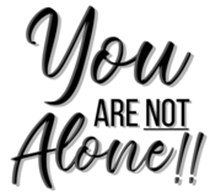|
By Abigail McCarthy, EAT Lab Research Coordinator
Learning or noticing that a friend or family member is struggling with an eating disorder can be devastating. The signs might be blatantly obvious– your loved one could:
Or, especially at first, the signs might be more subtle– you could’ve noticed that your loved one is:
It’s important to remember that 90% of people with an ED have normal body mass index, so often it is hard to visually tell if someone has an eating disorder. They might need more rest than usual to support their new “healthy” habits or could’ve finally reached their goal weight or shape. You might notice the distress on their face when they look in the mirror, but you think they look amazing. Dealing with an ED is a hard battle that nobody should have to fight alone. Here are ways you can actually make a difference: 1. Do your research and find a professional for support. It’s important to have education regarding eating disorders, but remember you are NOT their dietician, therapist, psychologist, or psychiatrist. Provide yourself with the knowledge to recognize the signs of an ED or a medical emergency as directed to by professionals. Here is some helpful and trustworthy information with a help hotline: https://www.nationaleatingdisorders.org/what-are-eating-disorders 2. Encourage your loved one to seek help. This could look like starting with a licensed counselor or seeking specialized eating disorder treatment. For more information, visit: What is ED treatment?: https://www.nationaleatingdisorders.org/treatment Treatment near you: https://map.nationaleatingdisorders.org 3. Try not to take things personally. If your loved one seems defensive or angry while denying that they are putting themselves at risk, remember that this is the ED talking– not your child, friend, sibling, parent, or cousin. Find a different outlet to express the anger you have towards their ED. Respond with love, empathy, and “I” statements. Do NOT confirm their ED behaviors to avoid conflict, remove yourself from the situation if you feel yourself doing so. More information on “I” statements: www.nationaleatingdisorders.org 4. Remember to take care of yourself too. Use self-care if you feel yourself becoming stressed or overwhelmed. Your mental health can be affected if you only prioritize another person. Self-Care information: https://www.nimh.nih.gov/health/topics/caring-for-your-mental-health 5. Remember they need to choose recovery for themselves. Avoid drawing attention to their disordered eating behaviors in front of others, keep these conversations private. Avoid forcing them to eat or face feared foods or asking them why they just “can’t” eat, these will likely make things worse. 6. If you and your loved one are minors, tell someone. If you worry your friend has a hard home life, and could be unsafe if you notified their parent, reach out to a school psychologist, guidance counselor, or other trusted adult. You can also reach out to the helpline on the National Eating Disorder Association website. You can’t handle this on your own, and neither can your loved one. Eating Disorder Helpline: https://www.nationaleatingdisorders.org/help
0 Comments
|
Archives
January 2024
Categories |
- About
- People
- Our Research & Publications
-
Participate in Research
- Personalized Interventions and Outcomes: Navigating Eating Disorder Experiences and Recovery (PIONEER) Study (Online)
- Youth Eating Study (YES!)
- Tracking Restriction, Affect and Cognitions (TRAC) Study (Online)
- Virtual Reality Study
- Facing Eating Disorder Fears Study (Online)
- Personalized Treatment and CBT-E Study (Online)
- Body Project Summer Camp
- The Body Project
- Clinical Screener Study (Online)
- Clinic, Supervision, and Consultation
- Blog & In the Press
-
Archived Studies
- Predicting Recovery Study (Online)
- Online Single Session Resources
- Reconnecting to Internal Sensations and Experiences (RISE) Study
- Web-Based Mindfulness Study
- Personalized Treatment Study
- Online Imaginal Exposure Study
- In-Vivo Imaginal Exposure Study
- Daily Habits 3 Study
- Daily Mood Study
- COVID-19 Daily Impact Study
- Conquering fear foods study
- Louisville Pregnancy Study
- Approach and Avoidance in AN (AAA) Study
- Web-Based Mindfulness for AN & BN Study
- Barriers to Treatment Access (BTA) Study!
- Mindful Self-Compassion Study
- Network EMA Study
- Legacy of Hope Summit Report
- DONATE-CURE EATING DISORDERS!
- Directions
- Statistical Consultation
- About
- People
- Our Research & Publications
-
Participate in Research
- Personalized Interventions and Outcomes: Navigating Eating Disorder Experiences and Recovery (PIONEER) Study (Online)
- Youth Eating Study (YES!)
- Tracking Restriction, Affect and Cognitions (TRAC) Study (Online)
- Virtual Reality Study
- Facing Eating Disorder Fears Study (Online)
- Personalized Treatment and CBT-E Study (Online)
- Body Project Summer Camp
- The Body Project
- Clinical Screener Study (Online)
- Clinic, Supervision, and Consultation
- Blog & In the Press
-
Archived Studies
- Predicting Recovery Study (Online)
- Online Single Session Resources
- Reconnecting to Internal Sensations and Experiences (RISE) Study
- Web-Based Mindfulness Study
- Personalized Treatment Study
- Online Imaginal Exposure Study
- In-Vivo Imaginal Exposure Study
- Daily Habits 3 Study
- Daily Mood Study
- COVID-19 Daily Impact Study
- Conquering fear foods study
- Louisville Pregnancy Study
- Approach and Avoidance in AN (AAA) Study
- Web-Based Mindfulness for AN & BN Study
- Barriers to Treatment Access (BTA) Study!
- Mindful Self-Compassion Study
- Network EMA Study
- Legacy of Hope Summit Report
- DONATE-CURE EATING DISORDERS!
- Directions
- Statistical Consultation


 RSS Feed
RSS Feed
